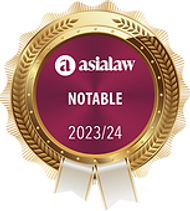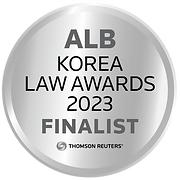How to set up a liaison office in Korea – What are the necessary documentations?
There is very limited authentic detailed information regarding on which basis, what kind of documents are required to prepare the set up of a liaison office in Korea.
Therefore, in this post, we would like to share an email provided to an (attorney of) client residing outside of Korea, seeking assistance in establishing a liaison office in Korea.
Dear Client,
Thank you for your email.
Regarding your inquiry of “a citation to the Korean regulations for setting up a liaison office”, please see below the link and the box in detail.
- It is not stipulated in the Foreign Exchange Transaction Act itself, but in the Foreign Exchange Transactions Regulations, which is a decree of Ministry of Economy and Finance. (대한민국 영문법령 (klri.re.kr))
Foreign Exchange Transactions Regulations
Article 9-32 (Scope of Application and Classification)
- The provisions of this section shall apply to cases where a non-resident intends to receive any funds as provided in Article 3 (1) 19 (e) and Article 15 of the Act in order to establish and operate a branch office and business office in the Republic of Korea (hereinafter in this section referred to as “domestic branch”); provided that the provisions of Chapter II shall apply to domestic branch offices and business offices of a foreign bank.
- Domestic branches of a non-resident shall be classified as follows:
- “Branch office” engaging in business activities generating revenues in the Republic of Korea;
- “Business offices” performing non-business functions, such as liaison, market surveys, research and development activities, without engaging in any business activities generating revenues in the Republic of Korea.
Article 9-33 (Declaration of Establishment and Modification)
- Any non-resident who intends to establish a domestic branch shall declare it to the head of a designated foreign exchange bank.
- Notwithstanding the provisions of paragraph (1), if a non-resident intends to establish a domestic branch the purpose of which is to engage in any of the following business affairs or any other business affairs related thereto, he or she shall declare it to the Minister of Economy and Finance:
- Financial business affairs, other than the banking business, including lending, arrangement and brokerage of overseas financing, card business and installment finance;
- Business affairs related with the securities and insurance business;
- Business affairs not permitted under other statutes including the Foreign Investment Promotion Act.
Any person who intends to declare as provided in paragraphs (1) and (2), shall submit to the Minister of Economy and Finance or the head of a designated foreign exchange bank declaration on establishment of a domestic branch of a foreign company using Form 9-8, with each of the following documents attached thereto:
1. Documents evidencing the name, location and major business affairs of a foreign corporation that is the head office;
2. A copy of related evidentiary documents if permission, etc. of such establishment is required under other statutes or regulations;
3. Detailed statement on the details and scope of business affairs to be pursued in the Republic of Korea.
4. Where a person who has declared the establishment of a domestic branch, intends to modify any declared matter, he or she shall submit declaration on modification of a domestic branch of a foreign company in Form 9-9 to the party to whom he or she made the former declaration, with each of the following documents attached thereto:
- Documents evidencing such modification;
- Business plan (in cases of modification of such branch’s business affairs).
With this being stated, the documents to be prepared are such to support those elaborated above. Which means, the detailed documents required are not written down even in the regulations, so the authorities have certain discretion in the determination process regarding the documents to be submitted.
Regarding the Form 9-8, below information are requested to be filled in.
- Official Name of the HQ
- Establishment Date of the HQ
- Representative of the HQ
- Location of the HQ
- Business of the HQ
- Capital of the HQ
- Name of the Liaison Office
- Name of the Representative of the Liaison Office and her/his registration number
- Location of the Liaison Office
- Business of the Liaison Office
Further, the documents that are generally requested to support above, are as follows.
1. Documents evidencing the name, location and major business affairs of a foreign corporation that is the head office;
:Such as foreign company (HQ)’s registration certificate (<-which requires translation notarization and an apostille) / HQ’s articles of incorporation / Document to support the capital of the HQ / Copy of the passport of the HQ representative
2. Detailed statement on the details and scope of business affairs to be pursued in the Republic of Korea
: Such as the board of director’s meeting minutes regarding the establishment of the liaison office in Korea (including the address of the liaison office, the decision to establish the liaison office, and the name and address of the liaison office), (documents to prove that the representative of the liaison office was designated) <- Which requires translation notarization and an apostille), business plan that is the be pursued by the liaison office, copy of the passport or i.d. of the representative of the liaison office, the document of the acceptance of the representative director, lease agreement of the liaison office,
*Since we need to submit above documents to both the official bank as well as to the tax authority, two copies of the apostilled documents are needed, including the POA.
Should you have further questions, do not hesitate to contact us at any time.
Thank you.
Best regards,
InterLEX
Understanding Labor & Employment Law and Getting Around Korea’s Regulations
In the vibrant and fast-paced business environment of South Korea, understanding labor and employment law is essential for both employers and employees. With a workforce known for its diligence and dedication, navigating through the intricate web of regulations is crucial to fostering a productive and harmonious work environment. This article aims to shed light on the key aspects of labor and employment law in Korea and provide insights into effectively navigating the regulatory landscape.
Korean labor law is primarily governed by the Labor Standards Act (LSA), which outlines the rights and obligations of both employers and employees. Under the LSA, key provisions include regulations on working hours, wages, leave, termination, and workplace safety. Employers must adhere to these regulations to ensure fair treatment of employees and maintain compliance with the law.
One of the notable features of Korean labor law is its emphasis on collective bargaining and labor unions. The Trade Union and Labor Relations Adjustment Act (TULRAA) governs the formation and operation of labor unions, as well as the negotiation of collective bargaining agreements. Employers are required to engage in collective bargaining in good faith and negotiate with labor unions on matters such as wages, working conditions, and labor disputes.
Navigating through Korea’s labor and employment regulations can be complex, especially for foreign businesses operating in the country. Cultural nuances and language barriers add another challenge to understanding and complying with Korean labor law. However, seeking the guidance of legal experts specializing in labor and employment law can help businesses effectively navigate these challenges and ensure compliance with Korean regulations.
InterLEX is a leading law firm offering labor and employment law services in Korea. With a team of experienced attorneys well-versed in Korean labor regulations, InterLEX provides comprehensive legal support to businesses seeking to navigate the complexities of labor and employment law in Korea.
InterLEX labor and employment law services cover a wide range of areas, including drafting employment contracts, advising on labor disputes, conducting HR audits, and providing strategic counsel on workforce management. The firm’s expertise extends to representing clients in negotiations with labor unions and handling disputes through mediation, arbitration, or litigation.
What sets InterLEX apart is its client-centric approach and commitment to delivering tailored solutions that meet each client’s unique needs. The firm takes the time to understand the specific challenges and goals of its clients and provides strategic legal counsel aimed at achieving optimal outcomes.
In conclusion, understanding labor and employment law is essential for businesses operating in Korea. Navigating through the regulatory landscape requires a thorough understanding of Korean labor regulations and cultural nuances. With the guidance of legal experts specializing in labor and employment law, businesses can effectively navigate these challenges and ensure compliance with Korean labor law. InterLEX offers legal experts specializing in labor and employment law guidance providing comprehensive legal support to businesses seeking to thrive in the Korean market.
Empowering Your Workforce Selecting the Best Law Firm in Korea
In the dynamic landscape of South Korea’s business environment, navigating through the intricacies of labour and employment law can be a daunting task for both employers and employees. With regulations constantly evolving to adapt to changing socio-economic trends, seeking the counsel of a specialized law firm becomes imperative to ensure compliance and mitigate risks. Among the myriad of legal entities in Korea, labour and employment law firms stand out as the go-to experts in safeguarding the rights and interests of employers and employees alike.
One such prominent firm making waves in the Korean legal arena is InterLEX best law firms in Korea, a powerhouse in Labour and Employment Law with a stellar reputation for its comprehensive and client-centric approach. Led by a team of seasoned attorneys with a deep understanding of Korean labour regulations, InterLEX law firms in Korea prides itself on providing tailored solutions to a diverse clientele ranging from multinational corporations to small and medium enterprises.
The cornerstone of InterLEX success lies in its commitment to staying abreast of the latest developments in labour and employment law. With a finger on the pulse of legislative changes and judicial precedents, the firm offers proactive legal counsel aimed at preempting potential disputes and ensuring regulatory compliance. Whether it’s drafting employment contracts, navigating complex labour disputes, or providing strategic counsel on workforce management, InterLEX leverages its expertise to deliver tangible results for its clients.
What sets InterLEX apart is its holistic approach to labour and employment law, which transcends traditional legal services. Recognizing that human resources management is integral to business success, the firm goes beyond mere legal advisory to offer comprehensive HR solutions tailored to the specific needs of each client. From conducting HR audits to implementing compliance training programs, InterLEX acts as a trusted partner in empowering organizations to navigate the intricacies of Korean labour regulations with confidence.
Moreover, InterLEX takes pride in its client-centric ethos, placing utmost emphasis on building long-term relationships based on trust and transparency. The firm adopts a collaborative approach, working closely with clients to understand their unique challenges and goals before crafting customized legal strategies. By fostering open communication and providing timely updates, we are the best law firms in Korea that ensures that clients are empowered to make informed decisions every step of the way.
Furthermore, InterLEX distinguishes itself through its commitment to excellence and innovation in legal practice. The firm harnesses cutting-edge technologies and employs data-driven methodologies to streamline legal processes and enhance efficiency. By embracing innovation, InterLEX law firms services in Korea not only deliver superior legal services but also sets new benchmarks for excellence in the field of labour and employment law.
In conclusion, navigating Korea’s complex labour and employment landscape requires specialized expertise and strategic counsel. With its unwavering commitment to excellence, client-centric approach, and innovative legal practice,InterLEX emerges as a trailblazer in the realm of Labour and Employment Law. For businesses and individuals seeking comprehensive legal solutions tailored to their specific needs, InterLEX stands out as a trusted partner in ensuring compliance, mitigating risks, and achieving success in the Korean market.
In the ever-evolving world of labour and employment law, InterLEX shines as a beacon of excellence, guiding clients through the complexities of Korean regulations with integrity, expertise, and unwavering dedication.
InterLEX Awards and Achievements received:

Asia Law – “Notable Firm” in the Area of Labor and Employment”
https://www.asialaw.com/Firm/interlex/Profile/7002#rankings
Asian Legal Business – “Finalist” in the area of “Labor and Employment Law Firm of the Year” and “Boutique Law Firm of the Year” in ALB Korean Law Awards (Winner will be announced this November 10, 2023) ALB Korea Law Awards 2023 | Asian Legal Business (legalbusinessonline.com)


Legal Times – “Leading Lawyers in the Area of Labor and Employment” [리걸타임즈 특집] Leading Lawyers 2023=인사노무 – 리걸타임즈 (legaltimes.co.kr)




